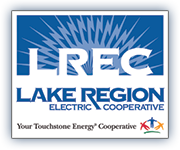Be Prepared for Outages
When outside, stay away from downed power lines.
- A power line does not need to be sparking or arcing to be energized, even if it is sagging close to or on the ground. Be aware that other utility lines can also become energized by being in contact with an electrical line.
- Lines that appear to be “dead” can become energized as crews work to restore power or, sometimes, from improper use of emergency generators. Assume all low and downed lines are energized and dangerous. If you see a downed or sagging line, contact your utility.
- Motorists should never drive over a downed line as snagging a line could pull down a pole or other equipment and cause other hazards.
- Be careful when approaching intersections where traffic or crossing lights may be out.
Assembling supplies before a storm arrives is one of the keys to weathering a winter storm emergency. Make sure your supply kit includes:
- Flashlights with fresh batteries.
- Matches for lighting gas stoves or clean-burning heaters.
- Wood for an adequately ventilated fireplace.
- First aid kit, prescription medicines, and baby supplies.
- Food that can be kept in coolers and a manual can opener.
- A non-cordless telephone and fully charged cell phone.
- Bottled drinking water.
- Battery-powered emergency lights and radio.
Maintaining warmth is a priority during a winter storm. Loss of body heat or hypothermia can be life threatening.
- Stay inside and dress warmly in layered clothing.
- Close off unneeded rooms.
- When using an alternate heat source, follow operating instructions, use fire safeguards, and be sure to ventilate properly.
- Stuff towels and rags underneath doors to keep the heat in.
- Cover windows at night.
- Keep a close eye on the temperature in your home. Infants and people over the age of 65 are more susceptible to the cold. You may want to stay with friends or relatives or go to a shelter if you cannot keep your home warm.
Knowing how to keep your home and loved ones safe is also important:
- Switch off lights and appliances to prevent overloading circuits and damaging appliances when power is restored. Leave one lamp or switch on as a signal for when your power returns.
- To prevent water pipes from freezing, keep faucets turned on slightly so that water drips from the tap. Know how to shut off water valves just in case a pipe bursts.
- Never use a charcoal grill to cook with or heat inside the home. Burning charcoal gives off deadly carbon monoxide gas. Charcoal grills should only be used outdoors.
If you plan to use a generator, know how to operate it safely (see Generator Talking Points)


